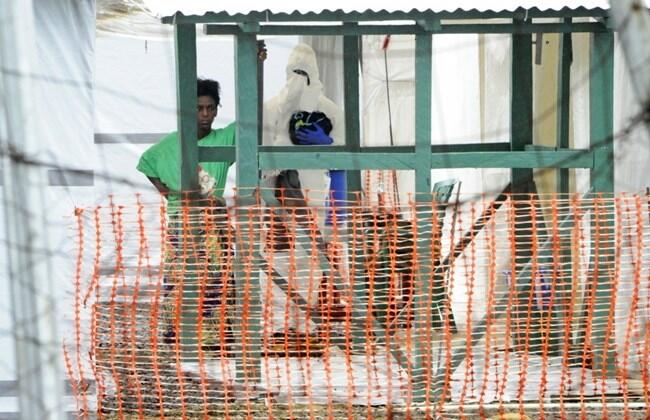There were just four confirmed cases in Guinea in the week to Sunday and three in Sierra Leone, the WHO said in the latest of its weekly updates on the epidemic. But it warned that one of the Sierra Leone cases, a patient who died after travelling from the capital Freetown to the central district of Tonkolili, posed “a substantial risk of further transmission.” “On July 19 the case attended a community hospital complaining of a headache, and was treated as an outpatient and discharged,” the WHO said. “Two days later on July 21, the case presented to a different hospital and was isolated on admission. The patient died on July 23 and was confirmed (Ebola) positive after post-mortem testing. “Over 500 contacts have been listed so far, several of whom are deemed to be high risk. Investigations are ongoing to establish the source of infection and identify and trace all contacts.” The WHO said all of the 500-plus contacts are in Tonkolili, which reported its first new case of Ebola earlier this month, ending a 150-day run of no new infections. Around 28,000 people have been infected in the two countries and neighboring Liberia in the worst Ebola outbreak in history, more than 11,000 of them fatally, according to official data widely seen as an underestimate. Sierra Leone’s President Ernest Bai Koroma has unveiled a two-year post-Ebola “battle plan” to reinvigorate the private sector as an engine for economic growth and job creation. The programme will be funded by more than $804 million (730 million euros) earmarked for Sierra Leone at this month’s UN Pledging Conference on Ebola. There was better news elsewhere, with Liberia reporting no new cases in the week to Sunday, following a small outbreak a month ago which dashed hopes that the country had eradicated the spread of the virus among humans for good. Six people were confirmed infected in the first cluster of cases for three months. Two of them died, but the remaining four have been given the all clear and the country is once again dealing with no known cases. For the first time since the epidemic emerged in December 2013, Guinea’s new cases were all registered contacts of previous Ebola patients, a strong indicator that the spread of the virus is under control. The seven cases in Guinea and Sierra Leone represented the lowest weekly total for over a year, the WHO said, snapping a two-month run during which weekly case incidence had plateaued at between 20 and 30. Agence France Presse











